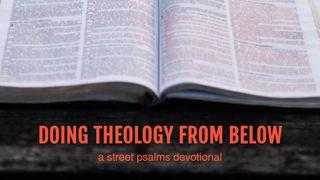5-Day Commentary Challenge - 1 Corinthians 13-14 Sample

Externals Versus Love, 13:1–3
Several dualisms are seen throughout this letter: (1) between the wisdom of man and that of God (1–4); (2) between knowledge and love (8–10); and, in 13:1, (3) between tongues and love. In chapter 13, Paul collected the majority of the Corinthians’ problems under the solution of love.
Paul listed the noblest Christian virtues in 13:1–3 (tongues, prophecy, mysteries, knowledge, faith, alms, martyrdom). Surely the possession of any one of those attributes would be guarantee enough of a rich and profitable ministry. At least the Corinthians thought so. But Paul saw it another way and presented his initial case by three sets of if-then conditions. Each set was broken in the middle with a contrast (“but”). The first set (13:1) related to the ability to speak in a foreign (earthly or heavenly) language. The second set (13:2) related to the ability to speak from a wealth of heavenly (“mysteries”) and earthly (“knowledge”) teachings, and to the ability to believe (“faith”) to the proverbial extent of moving mountains. The third set (13:3) related to the ability to give one’s earthly possessions away to the poor and to give away one’s own body to martyrdom.
Those were great acts of Christian faith—on the surface. Paul added a crucial contrast to each of those three conditions: “but do not have love.” Immediately all the great abilities and deeds had to be seen in a new light. They could exist in two modes, with and without love. No longer could one marvel at his or another’s gift or act. An accompanying question would have to be asked: Did it come with love? What if it did not? Paul’s last part of each set answered that question.
Without love the great speaking gifts were noise (13:1), and the speakers were nothing (13:2). Without love the great acts of charity and witness brought the giver and witness no profit. Note that Paul did not say that the gifts or deeds did not profit others; that was left unaddressed. Paul’s focus was on what accrued to the one speaking or acting. That one received nothing because he was nothing. This focus shows that the Corinthians were interested in having certain gifts for their own benefit and profit. Paul tried to correct that self-centered approach more fully in chapter 14. Actually, the entire letter seems to have been one grand attempt by Paul to correct Corinthian selfishness by explaining the power and implications of the wisdom, purity, power, and love that was founded in the cross of Christ.
The selection of subjects in this chapter is very closely aligned with the particular problems dealt with in this letter. Speaking with tongues was the particular spiritual gift being misused in Corinth (chap. 14), and it headed Paul’s list in 13:1. To have “the gift of prophecy” and to “know all mysteries and all knowledge” (13:2) was the central topic of the Corinthians’ problems (with knowledge and leadership factions) in the first four chapters. Properly understood, prophecy would become the loving alter- native to correcting the problem with tongues (14:5). Chapter 12 clustered those gifts as “knowledge, faith, healing, miracles, and prophecy.” The order in chapter 14 is revelation, knowledge, prophecy, teaching. In 13:3, Paul mentioned the good deed of giving away goods for the poor, the very subject with which he will close this letter (16:1–4). Therefore, many of the items in the list of 13:1–3 seem tailor-made for the Corinthian situation. The next section (13:4–7) continued with that same pertinence for Corinth.
Love’s Behavior, 13:4–7
This section introduced a change of style from 13:1–3. Here we find, not a definition of love, but how love operated in the everyday aspects of life. Paul portrayed love as a person, one who was kind and patient. Love was at the heart of all the good qualities listed. If someone was patient, love was behind it. If someone was kind, love was there. Love, then, was the heart of the wise way of life.
In this section, several of the qualities of love were especially relevant to the Corinthian situation. Patience (13:4) certainly was not being given to the weaker brother of chapter 8 or issuing from the gluttons of chapter 11. “Jealous” (13:4) related to the “jealousy and strife” of 3:3. “Brag” (13:4) was a Corinthian pastime (4:7; 5:6). “Arrogant” (13:4) was almost the key word for the Corinthian problem (4:6, 18; 5:2; 8:1). “Seek its own” (13:5) mirrored “seek his own” (10:24). “Take into account a wrong” (13:5) referred back to the whole problem of lawsuits in chapter 6 (see 6:7–8 especially). “Rejoice in unrighteousness” (13:6) raised the specter of the Corinthians’ boasting in the great immorality of chapter 5. But the items in 13:4–7 also transcended the particular Corinthian problems. Verse 7, in particular, widely expanded the limits of love in life. That fourfold statement summed up all the qualities in 13:4–6. Two words with much overlapping sense (“bears, endures”) framed the inner two words (“believes, hopes”). Four times the words “all things” punctuate the sense. The four phrases relate but two singular points. First, love would not collapse into hatred in the face of, for example, impatience, jealousy, boasting, arrogance, or insult. Second, love covered all things with faith and hope. It saw life, the good and the bad, from the perspective of faith and hope.
Scripture
About this Plan

This reading plan is from the Everyday Bible Commentary on 1 Corinthians 13-14 and will help you go deeper in the Scripture. It is for anyone who has a desire to grow deeper in their understanding of the Scripture and strengthen your relationship with God by understanding these crucial chapters in God's Word.
More
We would like to thank Moody Publishers for providing this plan. For more information, please visit: https://www.moodypublishers.com/books/bible-study-and-reference/first-corinthians--everymans-bible-commentary/
Related Plans

JOHN AND II + III JOHN Zúme Accountability Groups

I CORINTHIANS AND II TIMOTHY Zúme Accountability Groups

I JOHN Zúme Accountability Group

Doing Theology From Below

The Other Five Prayer Journey

When Christmas Isn't Merry

21 Day Prayer Challenge

The Gospel of Mark (Part Seven)

Love Like a Mother -- Naomi and Ruth
